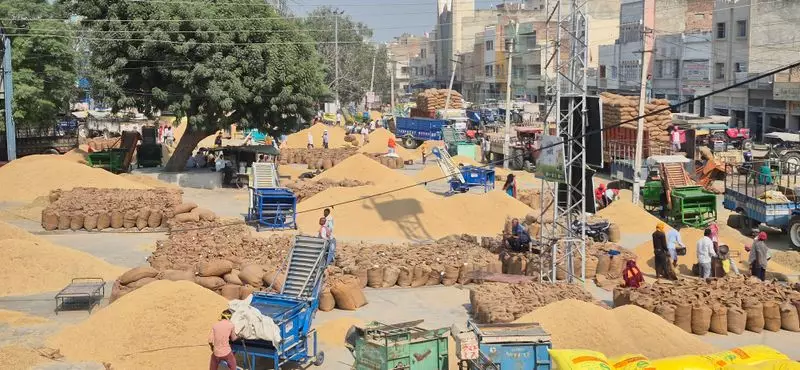
In a shocking revelation that has sent ripples through Haryana's agricultural community, private warehouses across the state are allegedly bypassing official government procurement channels, leaving thousands of farmers facing substantial financial losses.
The Systematic Bypass of Official Channels
According to recent investigations, numerous private storage facilities have been operating outside the established government procurement framework. These warehouses, which farmers trusted with their hard-earned produce, have been functioning without proper oversight from state agricultural authorities.
The situation has created a perfect storm for local growers who now find themselves trapped between unreliable private operators and an apparently inadequate monitoring system.
Farmers Bear the Brunt of Systemic Failures
Multiple farmers from across Haryana have reported significant financial setbacks after dealing with these private warehouses. The absence of government oversight means there's no safety net when things go wrong, and unfortunately for many farmers, things have gone terribly wrong.
One distressed farmer from Karnal district shared, "We deposited our crops believing we were following proper procedures, only to discover later that these warehouses weren't part of the official procurement system. Now we're struggling to recover our payments."
How the Process Should Work vs. Reality
- Official Procedure: Farmers sell produce through government-approved channels with guaranteed payments and quality checks
- Current Reality: Private warehouses operating independently without government supervision
- Result: No payment security for farmers and compromised quality control
Broader Implications for Agricultural Sector
This situation raises serious questions about the effectiveness of agricultural oversight mechanisms in Haryana. The very systems designed to protect farmers from exploitation appear to have significant gaps that private operators are exploiting.
Agricultural experts warn that such practices could undermine confidence in the entire procurement ecosystem, potentially pushing more farmers toward distress sales and increasing financial vulnerability in the farming community.
What Needs to Change?
- Strengthened monitoring of private agricultural storage facilities
- Clear communication to farmers about approved procurement channels
- Swift action against warehouses operating outside the system
- Compensation mechanisms for affected farmers
The state government faces mounting pressure to address these systemic issues before the next harvesting season, as farmers' livelihoods continue to hang in the balance.





